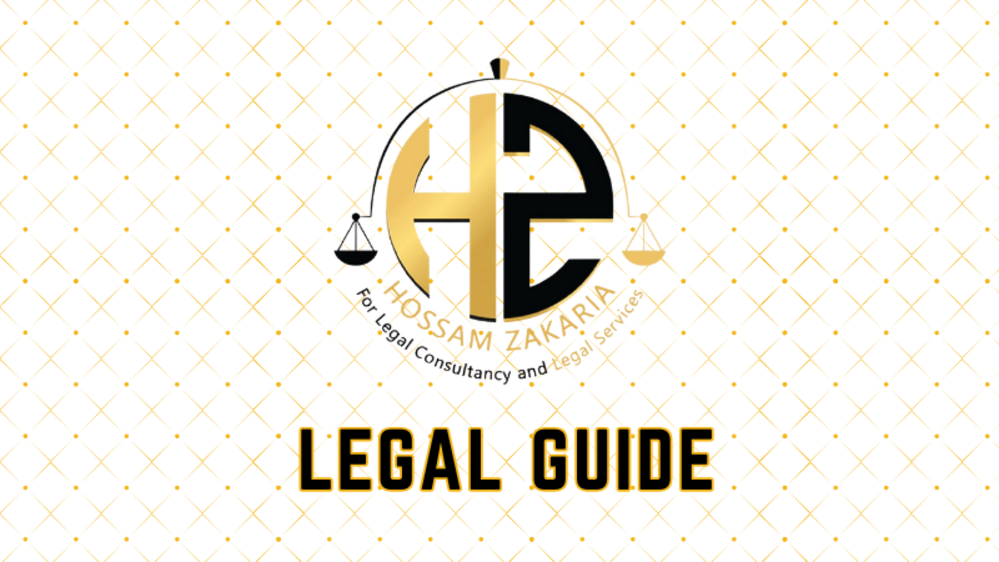Introduction: The Evolving Compliance Landscape in the Gulf
Across the Gulf region, financial institutions face a period of profound regulatory transformation. For compliance officers operating within Saudi financial institutions—and for UAE-based executives with cross-border interests—an in-depth understanding of evolving compliance responsibilities is now essential. As global regulatory frameworks tighten and local authorities intensify supervision, the role of compliance officers is no longer limited to box-ticking exercises but extends into strategic governance, operational risk mitigation, and maintaining the very license to operate.
Recent legal reforms in Saudi Arabia and ongoing UAE law 2025 updates signal a shift towards robust oversight, emphasizing not only the enforcement of anti-money laundering (AML) and combating the financing of terrorism (CFT) measures, but also greater personal accountability for compliance professionals and senior management. This article examines the essential legal duties for compliance officers in Saudi financial institutions from a UAE legal consultancy lens, highlighting regulatory frameworks, recent decrees, key compliance obligations, and implications for organizations with regional operations.
Staying ahead of these developments is particularly significant for UAE-based businesses and legal practitioners because:
- Business relationships and investments increasingly transcend borders within the GCC.
- Regulatory convergence and regional initiatives often require alignment of compliance strategies.
- Bilateral treaties and supervisory agreements mean UAE organizations are expected to demonstrate robust compliance in neighboring jurisdictions.
This article offers expert legal analysis, practical compliance insights, and actionable guidance tailored for decision-makers, compliance professionals, and legal counsel operating in and with Saudi financial institutions.
Table of Contents
- Regulatory Overview: The Legal Framework
- Key Legal Duties and Obligations for Compliance Officers
- Implementation and Enforcement: Supervisory Authority and Penalties
- Practical Consultancy Insights and UAE Relevance
- Non-Compliance Risks and Consequences
- Case Studies and Hypothetical Scenarios
- Best Practice Compliance Strategies
- Conclusion and Forward Perspective
Regulatory Overview: The Legal Framework
Saudi Regulations Shaping Compliance Officer Duties
Saudi financial institutions operate within a regulatory ecosystem that has rapidly advanced in recent years. The Kingdom’s principal legal and supervisory instruments impacting compliance officers include:
- The Saudi Central Bank (SAMA) Rules on Compliance Function (2020)
- Anti-Money Laundering Law (Royal Decree No. M/20 dated 5/2/1439H; 25/10/2017)
- Implementing Regulations on Combating Financing of Terrorism and Proliferation of Weapons of Mass Destruction
- SAMA Guidelines for Governance, Internal Audit, and Control Functions
These instruments collectively define the legal duties, reporting obligations, and authority of compliance officers, aligning Saudi standards increasingly with those of the UAE and international regulators. For UAE practitioners, appreciation of these Saudi requirements is vital—particularly for financial institutions with joint ventures or correspondent relationships in both markets.
Sources of Law: Saudi and UAE Parallels
While Saudi Arabia’s framework is designated by Royal Decrees and SAMA circulars, UAE compliance requirements are guided by:
- Federal Decree-Law No. 20 of 2018 on Anti-Money Laundering
- Cabinet Decision No. 10 of 2019 concerning the implementing regulation of AML/CFT law
- Central Bank of the UAE Regulations and associated guidance
Table 1 below provides a comparison of key compliance requirements in Saudi Arabia and the UAE, spotlighting recent enhancements relevant to cross-border compliance.
| Requirement | Saudi Arabia (SAMA/AML Law) | UAE (Federal Decree-Law No. 20/2018) |
|---|---|---|
| Mandatory appointment of compliance officer | Yes (with clear independence and authority requirements) | Yes (Risk-based appointment and direct access to management) |
| Direct reporting to Board/Senior Management | Explicitly required by SAMA | Explicitly required by Central Bank |
| Scope (AML/CFT, ethics, regulatory) | Broad: AML/CFT, market conduct, consumer protection | Primarily AML/CFT, extending to sanctions and customer due diligence |
| Personal accountability and liability | Growing focus, potential for individual penalties | Clear under 2022 legal amendments |
| Whistleblower protection | Limited statutory framework | Strengthened under 2022 Cabinet Decisions |
Key Legal Duties and Obligations for Compliance Officers
Primary Statutory Duties: From Prevention to Reporting
Legal expectations placed on a compliance officer (CO) in Saudi financial institutions can be distilled into the following essential pillars:
- Risk Identification and Assessment: Systematic recognition, documentation, and evaluation of all compliance risks relevant to the institution and its products/services.
- Ongoing Monitoring and Internal Controls: Establishment and maintenance of robust policies, monitoring regimes, and control systems appropriated for evolving risks and regulatory developments.
- Reporting Obligations: Timely escalation and communication of suspicious activities, breaches, and risk alerts—both internally (to senior management/Board) and externally (to SAMA and relevant authorities).
- Training and Awareness: Designing and delivering compliance training tailored to specific employee roles and regulatory expectations.
- Policy and Procedure Development: Drafting, updating, and implementing policies on AML/CFT, ethical conduct, data privacy, and regulatory reporting.
- Record-Keeping and Audit Readiness: Ensuring all transaction records, due diligence files, and compliance decisions are accurately documented and readily available for inspection.
- Regulatory Liaison: Serving as the main contact point for supervisory authority engagement—responding to requests, participating in inspections, and facilitating audits.
- Personal Declaration of Conflicts and Independence: Regular attestation of independence, with mechanisms for addressing and escalating any actual or perceived conflicts of interest.
Notable Regulatory Updates: What Has Changed?
With the latest SAMA Guidelines (2020 revision), the compliance officer role has become both broader and deeper:
- Explicit requirement for compliance officers to have direct, unrestricted access to Boards and key committees.
- Greater personal responsibility: Individual accountability for failing to identify or escalate breaches now formalized, with punitive repercussions.
- Mandatory annual compliance program reviews and independent assessments (often by third-party audit or consultancy).
In contrast, previous frameworks were less precise regarding reporting lines, personal liability, and the proactive nature of compliance planning. These changes align with the UAE’s ongoing reforms post-2021, as government bodies intensify their enforcement stances.
Table Suggestion: Evolution of Compliance Officer Duties (2015–2024)
| Criteria | 2015 Era | 2024 Standards |
|---|---|---|
| Reporting Line | Often managerial/mid-level | Direct to Board/CEO; report independence mandated |
| Scope of Oversight | Primarily AML/CFT | AML/CFT plus market conduct, customer protection, IT risk |
| Personal Liability | Generally implicit | Explicit legal accountability, with fines and penalties |
| Training/Certification | Ad hoc | Mandatory, role-specific, regularly updated |
| Whistleblower Support | Limited | Formal (at least in UAE), emerging in KSA |
Implementation and Enforcement: Supervisory Authority and Penalties
The Role of SAMA and Regulatory Enforcement
The Saudi Central Bank (SAMA) wields extensive supervisory and enforcement powers. For compliance officers, this translates into significant legal implications:
- SAMA’s power to conduct on-site and off-site inspections, request documentation, and require compliance attestations from responsible officers.
- Escalating penalties and sanctions—ranging from fines to suspension/removal of non-compliant officers, and in egregious cases, referral for criminal prosecution.
- Obligation to cooperate fully with all SAMA probes, including provision of information on short notice and unrestricted investigator access.
Visualization Suggestion
Penalty Comparison Chart: A bar graph or table showing penalty brackets for non-compliance under the old (pre-2020) vs new legal regime, highlighting liability increases for both institutions and individuals.
Comparative Table: Penalties Pre-2020 vs Post-2020
| Offence | Pre-2020 Penalties (SAR) | Post-2020 Penalties (SAR) |
|---|---|---|
| Failure to file SAR/STR | Up to 50,000 | Up to 500,000 (plus potential suspension) |
| Obstruction of investigation | Up to 100,000 | Up to 1,000,000 (plus criminal referral possible) |
| Repeated non-compliance | Graduated warnings, modest fines | Steep fines, officer deregistration, reputational sanctions |
UAE Parallels
The Central Bank of the UAE holds similar sanction powers. Notably, under updated provisions of Federal Decree-Law No. 20/2018 (as amended), both institutions and personally responsible officers face substantial fines, temporary bans from practice, and reputational exposure.
Practical Consultancy Insights and UAE Relevance
Cross-Border Compliance: What UAE-Based Firms Must Consider
For UAE-headquartered organizations with interests in Saudi Arabia, compliance does not end at national borders. Consider:
- Standardization of compliance frameworks: Unified group-wide policies are essential, but customization for Saudi regulations is non-negotiable.
- Appointment of suitable compliance leaders in each jurisdiction: The most effective compliance structures blend local expertise with centralized oversight.
- Training on jurisdictional differences: Staff mobility between UAE and Saudi offices necessitates targeted compliance induction programs to avoid accidental breaches.
- Management of data sharing and confidentiality: Especially when cross-border investigations or SARs require careful navigation of privacy laws in both states.
Consultant Recommendation
Establish dual-jurisdiction compliance committees that regularly exchange best practices, monitor cross-border risk factors, and report directly to boards in both countries. This ensures adaptability to shifting risks and regulatory expectations.
Non-Compliance Risks and Consequences
Institutional Risks: Beyond the Fine Print
The risks associated with non-compliance for Saudi financial institutions and their officers extend well beyond regulatory fines:
- Licensing Risk: Repeated or material failures may trigger license reviews, operational curtailment, or revoked permissions.
- Reputational Harm: Negative regulatory findings can lead to international banking restrictions, counterparties exiting relationships, and severe brand damage.
- Managerial Accountability: Board members and senior executives are now expressly liable if failures are linked to governance weaknesses.
- Legal and Criminal Liability: Officers can face personal prosecution, asset freezes, and even imprisonment in gross misconduct scenarios.
- Business Disruption: Major compliance failures can distract leadership, freeze transactions, and disrupt client relationships.
Table Suggestion: Compliance Risk Matrix
| Risk Category | Manifestation | Recommended Mitigation |
|---|---|---|
| Regulatory | Fines, sanctions, license suspension | Annual independent risk assessments, robust escalation protocol |
| Operational | Disrupted workflows, customer impacts | Regular compliance stress testing, scenario planning |
| Reputational | Negative press, client attrition | Crisis response plan, proactive stakeholder communication |
| Legal/Criminal | Officer prosecution, personal fines | Personal indemnity insurance; document control procedures |
Case Studies and Hypothetical Scenarios
Case Study 1: Cross-Border SAR Reporting Failure
Scenario: A UAE-headquartered bank with Saudi branches fails to timely escalate a suspicious transaction report (STR) due to differences in reporting formats between the two countries. SAMA imposes a SAR 500,000 fine and requires the compliance officer’s removal, triggering Board intervention across the group.
Analysis: Group compliance officers need clear checklists (see sample below), harmonized reporting protocols, and regular training updates to prevent operational misalignments.
Sample Compliance Checklist: STR Escalation
| Task | Responsible | Status |
|---|---|---|
| Suspicion identified via monitoring | Frontline staff | Complete |
| Preliminary review and documentation | Branch compliance officer | Complete |
| Internal escalation to group compliance | Branch compliance | Pending |
| STR filed to SAMA within deadline | Group compliance | Pending |
Case Study 2: Whistleblower Retaliation Allegation
Scenario: An employee in a Saudi subsidiary raises a compliance breach but is subsequently overlooked for promotion. The whistleblower files a complaint, drawing scrutiny from both SAMA and the group human resources director in the UAE.
Analysis: Institutions must align whistleblower framework implementation across all jurisdictions, ensuring robust legal protections. Consider periodic third-party audits and cross-training of HR and compliance to instill best practices.
Best Practice Compliance Strategies
Embedding a Culture of Compliance
- Board-Level Support: Secure visible board commitment to compliance priorities and resources.
- Holistic Risk Assessments: Conduct group-wide risk analyses considering Saudi-specific and UAE-specific risk exposure.
- Regular Training: Design scenario-based workshops, tailored by jurisdiction, ensuring frontline and senior management readiness.
- Dual-Layer Monitoring: Implement both automated and manual monitoring systems, leveraging regionally compliant technology and local expertise.
- Independent Audit Regime: Schedule annual external audits evaluating both policy adequacy and day-to-day compliance programme effectiveness.
Visualization Suggestion
Process Flow Diagram: Illustrate the journey of a compliance incident from detection to remediation, incorporating board review, regulatory escalation, and follow-up mitigation—tailored for both Saudi and UAE touchpoints.
Consultant Checklist: Compliance Programme Self-Evaluation
| Item | Evidence Required | Status |
|---|---|---|
| Board minutes documenting compliance reports | Board packs, approval notes | Reviewed |
| STR/SAR filing logs | Regulatory receipts | Pending |
| Employee training attendance | Certificates, registers | Complete |
| Internal/external audit reports | Audit documentation | Pending |
| Policy and procedure update logs | Version control register | Reviewed |
Conclusion and Forward Perspective
The role of compliance officers in Saudi financial institutions is more consequential than ever, shaped by dynamic legal reforms that spotlight both organizational accountability and personal liability. For UAE-based entities with Saudi exposure, understanding and adapting to these evolving duties—and harmonizing compliance approaches—remains a critical success factor as regulatory scrutiny intensifies across the GCC. The introduction of explicit personal liability, broader scope of compliance responsibility, and enhanced whistleblower protections mark a paradigm shift in both Saudi and UAE frameworks.
Looking ahead, institutions must:
- Continue to invest in knowledge-sharing across jurisdictions.
- Maintain agile compliance programmes that respond swiftly to new decrees and regulatory priorities.
- Foster a proactive compliance culture, rather than reactive box-ticking, to safeguard operations and reputation in an increasingly interconnected region.
By adopting best practice strategies and drawing on expert legal consultancy support, financial institutions will not only meet current compliance standards but also position themselves as trusted, forward-thinking players in the evolving Gulf financial landscape.



